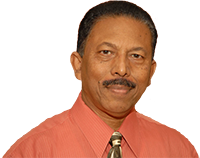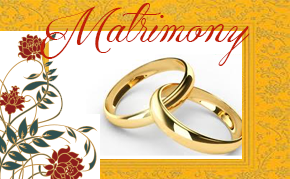
At the onset, let me thank the office bearers of Vicharavedi for giving me an opportunity to talk about a book, authored by Prof. Cheruvelil, whom I happen to have known for about three decades. Vicharavedi is fortunate today in having a wide spectrum, represented in the audience, of community leaders, members of different organizations, literary figures, educators, and above all, Prof.Cheruvelil’s family members.
When Prof.Cheruvelil presented me a copy of his book, my first reaction was : Wow! Is this another Mahabharatham? How can I finish reading 764 pages? Well, professors have a sixth sense to cognize listeners’ minds. I got the silent message - “read only if you wish.”
Prof. Cheruvelil is a well-known personality among Malayalee communities and other literary circles. He has been very active in the Indian Community in the tri-state area. He is a founding member of several organizations, including Kerala Samajam of Greater New York, Sargavedi, The Pioneer Club of Keralites and the New York Malayalee Boat Club. My association with him started through Kerala Samajam. At a time, when Prof. was actively involved with laying the groundwork for the Constitution of Kerala Samajam along with late Dr.Illickal, Mr. Babu Thomas, the then Kerala Samajam President, and late Mr. Mathew Koshi, I also used to participate in those marathon meetings. Later on, when the Malayalam School of Kerala Samajam started at St.John’s University, I was one of the Malayalam teachers. Ever since, we have continued to maintain our friendship. My homology with him includes a passion for the well being of Kerala Samajam, an interest in literature, a love for plants, and an association with Christ College, Irinjalakuda.
Now, who is the actual Prof. Joseph Cheruvelil? Let me quote from his own prologue, “ I am Catholic in religion, Hindu in culture and an eclectic in taste.” I would like to add that he is a cosmopolitan in the true sense of the word: Catholicism is his approach to life, and humanity is his tenet. Surprisingly, his family name’s first three letters CHE are testament to the afore-mentioned qualities: C for Catholic, or Cosmopolitan, H for Hindu and E for Eclectic.
His pluralistic world view is a world away from some of the religious bigots of today. The very conclusion of his book (Oremus) and four or five prayers representing different religions during his Sapthathy Celebration (70th birthday) testify this fact.
People who know the Professor, know very well that he is one of the very few luminaries among Malayalees who has a command over both languages and hence, is a well sought-out speaker in many Indian functions throughout the tri-state area. He wrote “A Passage to America” in English, so that it would be more accessible to future generations.
Despite being a U.S. Citizen, he is a loyal son of Mother India. We can see his desire to be a true citizen of the U.S. and at the same time, an ardent proponent of all the glories of Mother India. This is well elucidated through several anecdotes in his book. He tries to strike a balance between the two cultures, assimilating the best from both. He cherishes a balanced synthesis of the values and traditions of both cultures. If one observes carefully, one can see that the cover of the book itself is a demonstration of this fact. While choosing the colors for the cover, he wanted to have a balanced representation of the colors of the flags of the U.S. and India.
When I saw the title of the book, the resemblance to E.M. Foster’s “A Passage to India” came to my mind. “A Passage to India” is a novel; the theme being, “Is it possible for the Indian and the Englishman to be friends?” “ A Passage to America” is a memoir, though.
“A Passage to America” contains glimpses of pre- and post- independent India, historical events in America, global events at large, psychological perspectives, educational philosophies, politics, economics and other elements. No wonder, the Prof. spent three and a half years writing this book. The book also throws light on the Professor’s approach to life and its varied experiences. The Prof. is a relgious person with high moral values. He is a pious soul, who has a soft corner for the poor and down-trodden in society. We know about this in his narration of an incident during one of his train journeys. A man was eating a Vada which happened to fall to the floor. When a hungry beggar boy tried to pick up the Vada from the floor, the angry man crushed it with his sandals, hurting the poor boy’s tiny palms. Then, Prof. Cheruvelil bought some Vadas for the boy. On another occasion, while he was teaching in Tamil Nadu, a poor student who had nothing to eat for dinner and breakfast, fell asleep in class. When he learned about the boy’s sad story, the Prof. took him to the hotel where he used to eat, and made arrangements for his meals on a regular basis.
One thing I like about this book is that, people of my generation can easily connect to many of the settings, incidents, scenarios, and socio-political structures described therein. This rekindles our nostalgia and patriotism.
The Prof. took the challenge at a very young age, in leaving everything that was dear to him - his family, friends and native palce for an alien land with a totally different people and culture. And that too, at a time when transportation was very cumbersome. May be his Kuttanandan familiarity with Vellam and Vallam ( water and canoes) provided some consolation for him to survive the ordeal of a month-long voyage in a cargo ship.
In the first chapter, we can see that he did not want his birth to go unnoticed. He tried to list important global events chronologically from the birth of the universe to his own. Here we find his fascinating interests and awareness of what is happening around us. In the seventh chapter ( Rites of Passage), when he recalls his early school life, I can very well relate to many of the facts he has described. I was a weak boy physically in my school days and hence I used to avoid sports. This book is a reference guide for three generations - past, present and future. Is it a novel, story, travelogue, history, an auto-biography? It is none of these, because it is an amalgam of all of these. Above all, this book is about the metamorphosis and holometabolics of a rustic Kuttanandan boy to a well respected world citizen.
Yes, this book of 764 pages is voluminous. And yes, some sections could have been truncated. This book is not for a casual reading, but requires serious reading.
Before I conclude, let me congratulate Prof. Joseph Cheruvelil for his acumen and efforts, especially for spending three and a half years of his retirement life in the making of his book. I wish him and his family all the best.
Ayushman Bhava !
(Presented at Vicharavedi, New York, held on 11-9-14)
Comments





